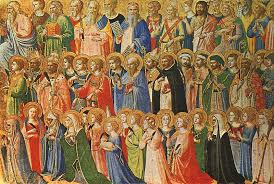 I have often joked that when my family and I began the adventure of Christian classical education nearly two decades ago, I thought we Americans had invented Christianity in the 17th century. And while that is a bit of an exaggeration, it is no stretch at all to say that I was largely ignorant of my true Christian heritage. I was ignorant of the history of the Church and of exactly what my baptism made me a member.
I have often joked that when my family and I began the adventure of Christian classical education nearly two decades ago, I thought we Americans had invented Christianity in the 17th century. And while that is a bit of an exaggeration, it is no stretch at all to say that I was largely ignorant of my true Christian heritage. I was ignorant of the history of the Church and of exactly what my baptism made me a member.
Like good Christians everywhere, I had read and was reading the Bible. I knew that Christ was the Cornerstone of the Church, that the Apostles were the first elders and missionaries and Church Council. I knew of the Holy Spirit falling in tongues of fire on those gathered on the day of Pentecost, about the appointing of deacons, about breaking bread from house to house, sharing goods among the brethren as each had need, and of Paul’s many journeys to establish and strengthen churches and his subsequent letter-writing to them. What happened between then and the Pilgrims coming to Plymouth, however, was a bit foggy.
You may expect me at this point to blame my public school education for this omission, but that would be unfair of me. The truth is that I was just a terrible student. There may have been all sorts of European history offered to me, sprinkled therein with history of the western church, even if it might have been told from an uncharitable viewpoint. I know serious people were trying to teach me something—I just wasn’t interested in any of it, so I couldn’t say for sure if Church history was really omitted or if I just ignored it. Enough of that.
By the time my children were in third grade at Trinitas, my wife and I were being challenged by historic creeds of the Christian Faith written in the first few hundred years of the Church and approved by famous, hotly contested Church Councils. We were encountering catechisms written by European Presbyterians and Baptists long before there was a United States of America. And then there were reams of orthodox theology that settled questions hundreds of years ago for the Body of Christ—questions that still existed in my own mind and about which debates still floundered ignorantly in my Sunday school class. If only we had known. To put it bluntly, we realized that we did not know who we were.
Rather than stick our heads in the sand or kick against something we did not understand because we did not understand it, we decided to educate ourselves alongside our children. What we gained over the course of that education was an informed perspective on our faith and an understanding of historical Christianity that put us at peace with the Evangelical Protestant heritage we inherited. We learned that in addition to our salvation as individuals, we are part of a family, the church, the Bride of Christ that is made up of those alive now and those who have gone before. Without exposure to classical Christian education, I am not sure we would have experienced that growth. That is not to say that classical Christian education is the only way to come by what we gained, but I do not know where else we would have gotten it.
The result for my family has been, if nothing else, a profound knowledge that we are in the lineage of untold myriad souls who make up both the Church Triumphant that has passed before us and the Church Militant alive today. In Hebrews 12:1 we are reminded that “we are surrounded by so great a cloud of witnesses.” This is none other than the saints of God who have made up the Body of Christ for two thousand years. They surround us, looking on—and one might imagine praying earnestly that we would do a better job of planting in the furrows they have plowed before us rather than so often laboring in ignorance of their great work.
If this seems like an oddly timed topic, it isn’t. Sunday, November 1st, was All Saints Day when much of the Church universal celebrates the lives of all the saints that make up the Church. So let me use your membership in that Body now as a springboard to encourage you in the most important things. This week, we have an election, one that is likely to drag on uncomfortably long and be accompanied by scenes incongruous to all we hold dear in the United States of America. Do your civic duty. Participate in the process as you think best. No matter what happens afterward, though, remember that you hold membership in the Body of Christ. All baptized Christians are members of the Church universal, along with all those who have gone before us and will come after us. That membership is eternal. Long after every memory of the election of 2020 has been erased, the Church, the Bride of Christ, will remain. You are part of something far bigger, the success of which does not depend on this election.


